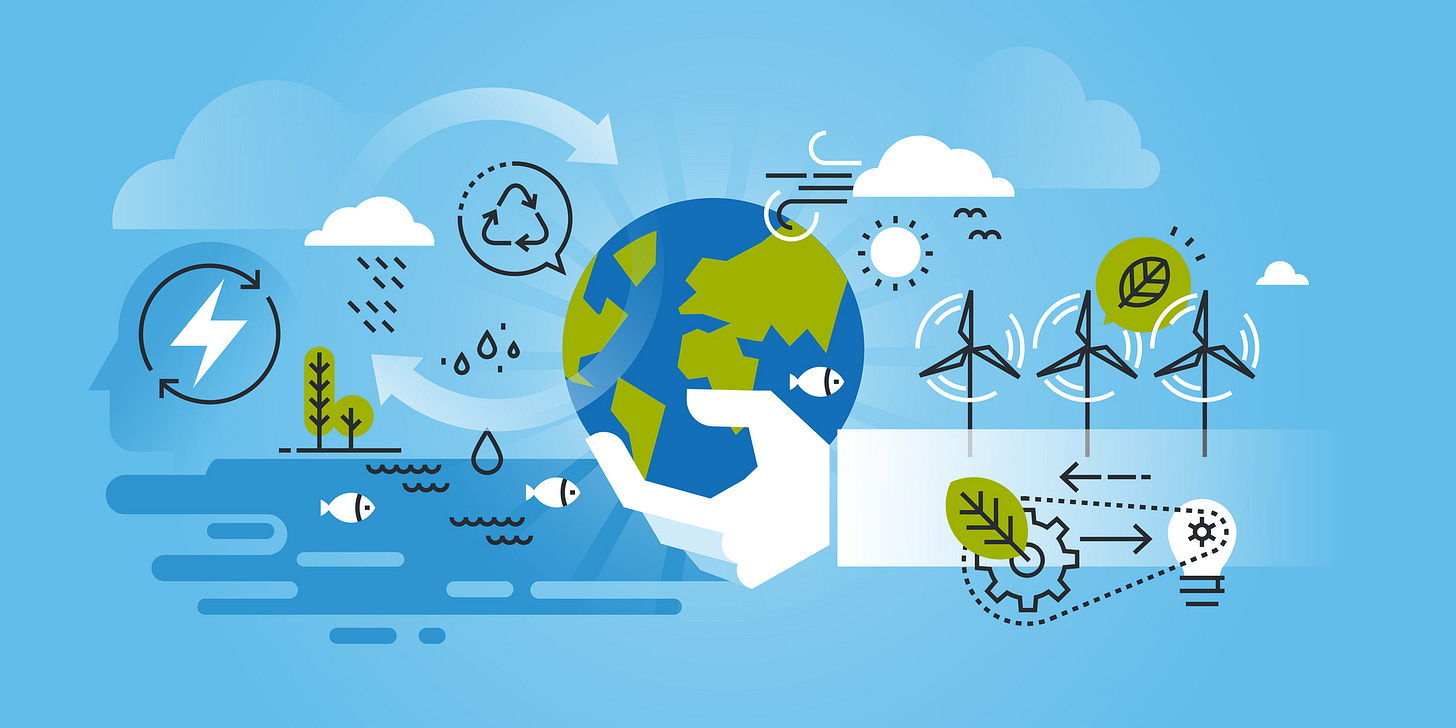
In the context of extreme global environmental challenges, the significance of individual actions cannot be overstated—particularly in terms of dietary choices. The decision to adopt a vegan diet emerges as a potent means to mitigate one's impact on the environment. By rejecting meat and dairy, people can directly reduce greenhouse gas emissions, decrease water and land usage, and lessen the demand for resources that contribute to habitat destruction and biodiversity loss. This shift not only addresses issues like climate change and resource depletion but also promotes a sustainable food system that can support global populations more efficiently.
‘‘Embracing veganism is not just about changing what's on your plate; it's about reshaping the world and ensuring a sustainable future for all.’’
Here's why embracing veganism could be the most impactful decision you make for the planet:
Lower Greenhouse Gas Emissions
The evidence is clear: diets rich in meat and dairy are significantly more carbon-intensive than vegan diets. According to a study published in the journal Science, avoiding meat and dairy products is one of the single biggest ways to reduce your environmental impact on the planet. Livestock agriculture is responsible for 14.5% of global greenhouse gas emissions, with cattle (raised for both beef and milk, as well as for inedible outputs like manure and draft power) being the animal species responsible for the most emissions, representing about 65% of the livestock sector’s emissions. In comparison, plant-based foods produce significantly fewer emissions, making veganism a straightforward path to climate change mitigation.
Reduced Land and Water Use
Animal agriculture occupies nearly 80% of global farmland, yet produces less than 20% of the world’s supply of calories. Such inefficient land use encourages deforestation and biodiversity loss. Moreover, animal farming is highly water-intensive; producing a single pound of beef requires an average of 1,800 gallons of water. On the other hand, plant-based foods require substantially less water, exemplifying more sustainable resource use.
Greater Efficiency and Less Pollution
Growing plants to feed directly to humans rather than animals is inherently more efficient. This efficiency translates into less strain on resources such as land and water, and results in lower pollution levels. Fertilizer runoff, pesticides, and other pollutants from intensive agriculture degrade ecosystems and affect human health, problems that are exacerbated by animal agriculture.
Supporting Biodiversity and Sustainable Practices
The current rate of meat consumption is one of the leading drivers of biodiversity loss. Forests and other natural habitats continue to be cleared for grazing and to grow feed crops. A shift towards veganism could help preserve vital ecosystems, protecting diverse species and maintaining ecological balance.
The Path Forward
Adopting a vegan diet isn't just a personal health choice—it's a decision that has profound implications for the health of our planet. Each meal is an opportunity to vote for the kind of world you want to live in. By choosing plant-based foods, we can collectively drive down global demand for meat and dairy products, decreasing the overall environmental burden of our food systems.
Embrace Change
The journey towards a sustainable future requires bold steps, and adopting a vegan diet is one of the most effective ways to contribute to this global movement. Reducing your environmental footprint, promoting efficient use of resources, and supporting biodiversity are all benefits that extend far beyond individual health.
Transitioning to a vegan diet can seem daunting, but every small change contributes to a larger impact. Whether it's choosing a plant-based meal a few times a week or fully committing to veganism, your choices can lead to significant environmental benefits.
The choice is clear. For those looking to make a positive impact on our planet, veganism is a powerful and effective pathway.
Sources:
Poore, J., & Nemecek, T. (2018). Reducing food’s environmental impacts through producers and consumers. Science, 360(6392), 987-992.
Gerber, P. J., Steinfeld, H., Henderson, B., Mottet, A., Opio, C., Dijkman, J., Falcucci, A., & Tempio, G. (2013). Tackling climate change through livestock – A global assessment of emissions and mitigation opportunities. Food and Agriculture Organization of the United Nations (FAO), Rome.
Mekonnen, M. M., & Hoekstra, A. Y. (2012). A global assessment of the water footprint of farm animal products. Ecosystems, 15(3), 401-415.
Visit Our Amazon Store!
Notice: As an Amazon Associate, we earn a commission from qualifying purchases that help promote animal rights worldwide!
General Resources
Books:
Dominion: The Power of Animals in Nature and in Our Imagination by Matthew Scully
Animal Liberation by Peter Singer
Eating Animals by Jonathan Safran Foer
A Billion Hungry Mouths: Feeding the World Without Consuming the Planet by Colin Tudge
Websites and organizations:
Documentaries:
Articles:
"The Case for Animal Rights" by Tom Regan
‘‘Why We Love Dogs, Eat Pigs, and Wear Cows: An Introduction to Carnism’’ by Melanie Joy
‘‘Animal Rights: The Abolitionist Approach’’ by Gary L. Francione
‘‘Fellow Creatures: Our Obligations to the Other Animals’’ by Christine Korsgaard
Seeds of Compassion: Finding Jesus Christ in a Vegan World by Michael Corthell
Receive a single informative article daily at 12:01 AM by email. Explore my homepage with exciting vegan and plant-based news content and delightful and delicious recipes for additional updates. Stay connected to the vegan world and all it has to offer.
Visit The Vegan Project Global our Facebook page for more vegan outreach and education.
Also, visit our new YouTube channel
The information on this vegan/plant-based blog is for general informational purposes only. It is not intended as legal, medical, or professional advice. Readers should consult with appropriate professionals for specific advice tailored to their situation. The blog owner is not responsible for any reliance on the information herein.




